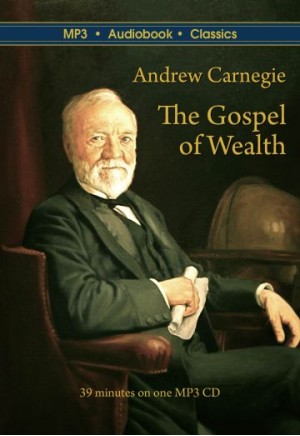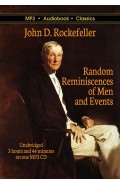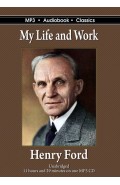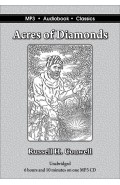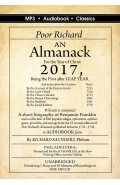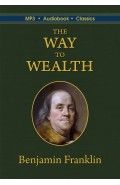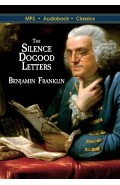| Track | Section | Duration |
| 1 | The Gospel of Wealth | 33:12 |
| 2 | The Gospel of Wealth - Andrew Carnegie | 5:54 |
Production
Running time: 39 minutes
Read by: D. S. Harvey and Andrew Carnegie
Produced by D. S. Harvey
Artwork
Cover: Portrait of Andrew Carnegie, 1905, painter unknown. National Portrait Gallery.
Inset: Andrew Carnegie’s philanthropy as golden shower. Puck magazine cartoon by Louis Dalrymple, 1903
Inset: Andrew Carnegie circa 1878 from Autobiography of Andrew Carnegie
You can find digital download and streaming versions in most online audiobook sellers.
| 24Symbols | 3 Leaf Group | Amazon/Audible |
| Anyplay | Apple | Apple Music |
| Audiobooks Now | Audiobooks NZ | Audiobooks.com |
| Audiomol | Audioteka | Baker & Taylor, Inc. |
| Barnes & Noble | Beek | Bibliotheca, LLC |
| BookBeat | BookMate | Calm Radio |
| Chirp | Cliq Digital | Deezer |
| Divibib | Downpour | EBSCO Information Services |
| eStories | Follett Library Resources | Google LLC |
| Grupo Vi-Da | hibooks | Hoopla |
| Hummingbird Media | Instaread | Kobo |
| Libro.FM | ListenerU | Mackin |
| Napster | Nextory | Nook |
| Odilo | Overdrive | Permabound |
| Scribd, Inc. | Skoobe | Spotify |
| StoryTel | UBook | Wheelers Book Club Limited |
| YouScribe | YouTube Music |
Andrew Carnegie, an immigrant from Dunfermline, Scotland with only a grammar-school education, amassed a fortune in the steel industry the 1800’s to become the richest man in American history. Yet Carnegie believed strongly that the wealthy should live modestly, without ostentation, and devote their energies after achieving wealth to finding ways to invest their “surplus wealth” in ways that benefit the public. Historically, private fortunes were handed down to heirs, with bequests to the state for public purposes as well. Carnegie observed that fortunes were often squandered in self-indulgent extravagance and irresponsible spending and felt such funds would be better put to use to help the poor help themselves and reduce the stratification of the classes. He favored a system of progressive inheritance taxes to help facilitate this distribution, but also felt the best results would be achieved when those that had made the fortunes turned their attention to investing their capital in charitable enterprises that they controlled and even managed. He initially published his controversial ideas in the North American Review 1880 in an article entitled “Wealth”. It was later re-titled “The Gospel of Wealth” and published in the Pall Mall Gazette in 1889. It has become the foundation document that sets forth much of the thinking behind philanthropy since his time. It has been called the ‘urtext’ of modern philanthropy by Benjamin Soskis, a historian of philanthropy. The article appears here in two versions. The first is a new reading by D. S. Harvey and the second is recording of Carnegie himself.
Play sample:
Download a PDF datasheet
| Item Info | |
| EAN - DVD case | 0682550991337 |
| EAN - CD jacket | 0686175923308 |
| Media | MP3 CD |
| Package | DVD box |
| Author | Andrew Carnegie (1835 - 1919) |
| Year | 1889 |
| Recording | |
| Read by | D. S. Harvey |
| Length | 33 minutes |
| Type of Reading | Solo |
The Gospel of Wealth
- Author: Andrew Carnegie
- Product Code: DB-5003
- Availability: In Stock
-
$7.99
Available Options
Related Products
Random Reminiscences
Random Reminiscences of Men and Events by John D. Rockefeller is a memoir of his activities in the o..
$9.99
My Life and Work
"My Life and Work" is an autobiography written by Henry Ford in conjunction with Samuel Crowther and..
$11.99
Acres of Diamonds
Acres of Diamonds is a book by Russell H. Conwell that was published in 1890 as a document of a lect..
$9.99
Poor Richard's Almanack
Poor Richard’s Almanack was a yearly almanac published by Benjamin Franklin using the pseudonym Rich..
$9.99
The Way to Wealth
The Way to Wealth by Benjamin Franklin is America’s first book on personal finance and in the opinio..
$7.99
The Silence Dogood Letters
During his teenage years Benjamin Franklin worked as an apprentice printer at his older brother’s pr..
$8.99
Tags: The Gospel of Wealth

